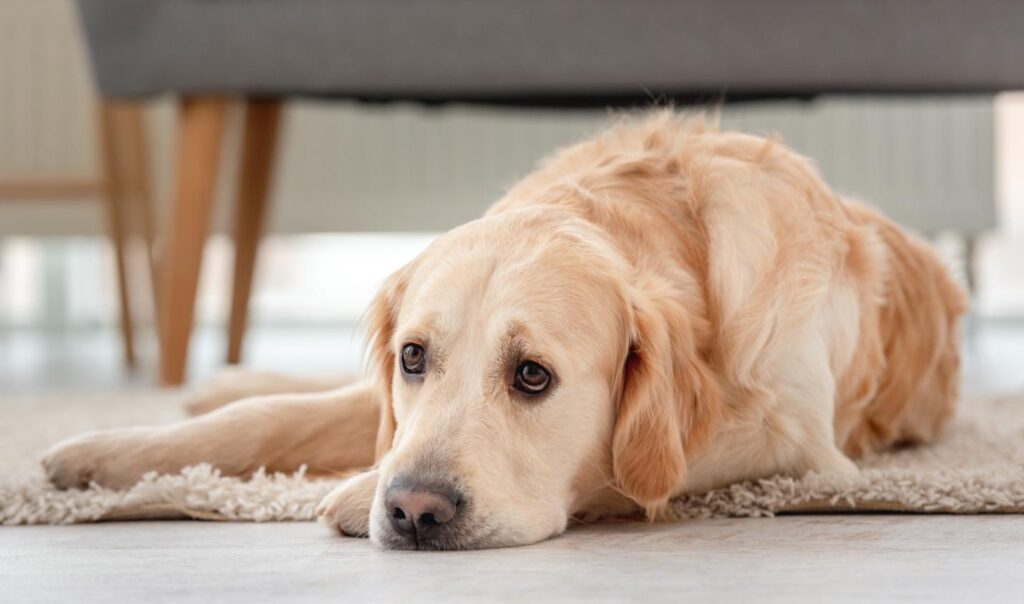Dogs Separation Anxiety Explained

Dogs are one of the most loving, loyal creatures on the planet. But what happens when they’re suddenly separated from their owner?
Unfortunately, dogs can suffer from separation anxiety, which can lead to destructive behaviors and even depression. However, there are ways to help your dog cope with this anxiety so that everyone can stay calm and happy.
Dogs Separation Anxiety Explained
If you’ve ever come home to find your dog pacing anxiously or trying to chew through a door or window, you may be dealing with separation anxiety.
Separation anxiety is a common problem in dogs, and one that can be difficult to deal with. But with some patience and understanding, you can help your dog overcome this anxiety and enjoy a calm, relaxed life.
The good news is that separation anxiety is treatable. With some behavior modification and training, you can help your dog learn to cope with being away from you.
You’ll need to be patient and consistent, but the effort will be worth it when you see your dog happily relaxing at home while you’re away.
Symptoms of Dogs Separation Anxiety
Symptoms of separation anxiety in dogs can include excessive panting or whining, pacing or restless behaviour, chewing on furniture or other objects, eliminated indoors, and attempts to escape from home in an attempt to find their owner.
If your dog is showing any of these signs, it’s important to seek help from a qualified veterinarian or animal behaviourist.
With proper treatment, most dogs with separation anxiety can learn to cope with being away from their owners and lead happy, healthy lives.
Causes of Separation Anxiety for Dogs
There are many different possible causes of separation anxiety in dogs. It could be due to a traumatic event such as being abandoned or rehomed, or it could be due to genetics. Some dogs are simply more prone to separation anxiety than others.
However, the most common cause of separation anxiety is a lack of socialisation and exposure to different people and environments during puppyhood. This can lead to a fear of abandonment and separation anxiety when the dog is left alone.
How to Resolve Separation Anxiety for Dogs
Separation anxiety is a serious condition that can cause physical and psychological distress in dogs. It occurs when a dog perceives that they are being separated from their “safe place” or from something they see as a source of security.
This can be their owner, another family member, or even a favorite toy.
There are several things that you can do to help your dog if they suffer from separation anxiety.
- Make sure that you socialise your dog from an early age and expose them to as many different people and environments as possible. This will help them to feel more comfortable when they are left alone
- Provide your dog with plenty of mental and physical stimulation when you are home with them. This can include things like interactive toys, training, walks, and playtime.
- Create a comfortable space for them to relax in while you’re away. This could be their crate or bed, or even just a spot on the couch with their favorite toy. Make sure they have access to food and water, and try to leave the TV or radio on so they don’t feel so alone.
- Make sure that you have a consistent routine when leaving and returning home so that your dog knows what to expect.
It’s important to understand what separation anxiety is and how it manifests in dogs. Many people think that separation anxiety is simply a case of a dog being sad when their owner leaves them alone. However, it’s actually much more complicated than that.
Don’t make a big deal out of leaving or coming home. If you act like it’s no big deal, chances are your dog will follow your lead.
If you loved this article, you will also love reading our eBook Dubai Ruff Guide
You will also like to read:
For more furry destinations, latest blogs, events, and providers you can stay updated by following us on Instagram and signing up for our newsletters.

